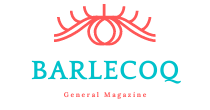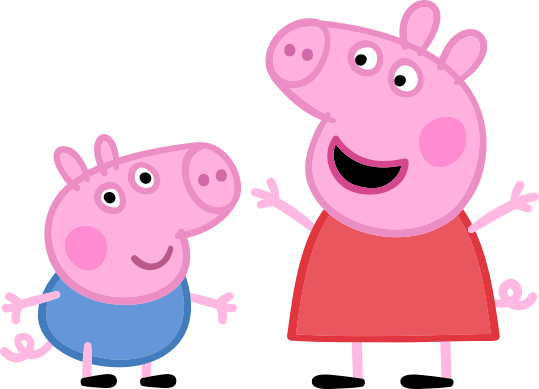Peppa Pig is a beloved British animated children’s television series that has been entertaining and educating young children across the world since 2004. As parents, we want our children to have access to age-appropriate programming that is both entertaining and educational. Peppa Pig is a great choice for parents because it provides a wealth of learning opportunities that can help children develop socially, emotionally, and cognitively.
By exploring the world of Peppa Pig, parents can learn how the show can help foster their child’s development. From encouraging language development to helping kids understand emotions, Peppa Pig can be an invaluable tool for parents who want to give their children a positive start in life. With this guide, parents will learn how to use Peppa Pig to their advantage and how to ensure that the show is an enjoyable and beneficial experience for their children.
Benefits of Peppa Pig for Children
Peppa Pig is a great way to introduce young children to a wide range of crucial skills. By exploring the show, parents can help their children develop linguistic, social, creative, emotional, and cognitive skills.
Linguistic skills: Peppa Pig is a wonderful show for children to learn language skills. Parents can help their children apply what they’re learning in the show to their everyday lives.
Social skills: Peppa Pig teaches children the importance of being kind, considerate, and empathetic. Showing your child the show can help them learn how to be socially competent while having fun.
Creative skills: Peppa Pig encourages children to express themselves creatively through art and writing. Kids can also learn how to be innovative by exploring the many things that Peppa and her friends try.
Emotional skills: Peppa Pig helps kids understand their emotions by showing them how all of the characters deal with feelings like anger, frustration, and disappointment. Exploring the show can help your child become more emotionally mature.
Cognitive skills: Peppa Pig helps children develop critical thinking skills as they try to solve problems and make good decisions. Parents can help their children apply what they’ve learned from the show to other areas of their lives.
How Peppa Pig Encourages Language Development
Peppa Pig encourages language development through interactivity. Children can respond to the characters’ actions and words by saying things themselves. The show also encourages language development by catering to different reading levels. Parents can help their children learn words and sounds by using Peppa Pig books to read aloud. Reading together allows parents to help their children decode words and understand new vocabulary.
By reading together, parents can help their children strengthen their linguistic skills and use them to learn from Peppa Pig. Peppa Pig also encourages language development through repetition. By watching the show and rewatching episodes, children can get exposure to certain words and phrases. The more they see and hear these language concepts, the more likely they are to remember them and start using them themselves. Repeating words and phrases stimulates language development in children because they get practice thinking about language and figuring out how to communicate their thoughts.
How Peppa Pig Encourages Creative Thinking
Peppa Pig encourages creative thinking in children by having them explore new and innovative ideas. In every episode, Peppa and her friends come up with new plans, recipes, and games. Sometimes, these plans don’t go as expected, but the friends learn from their mistakes and try again. By having the characters experiment with new ideas and plans, Peppa Pig encourages creative thinking in children.
Parents can help their children develop creative thinking skills by encouraging them to be inventive. When children have a question or need help with something, parents can have them solve the problem in their own way. This can help kids learn how to be creative in their problem-solving skills. Parents can also use Peppa Pig to show children how creativity can be used in everyday situations. For example, if your child is having trouble learning to tie their shoes, help them come up with an innovative way to solve the problem.
How Peppa Pig Teaches Kids About Emotions
Peppa Pig teaches kids about emotions by showing them how the characters feel and react to different situations. Whenever a character is sad or angry, they show the emotion clearly so that children can understand what is happening. Parents can help their children learn about emotions by pointing out how the characters in the show feel different things.
As children watch the show, they may notice emotions like anger and frustration in themselves. Parents can use Peppa Pig to help their children understand these emotions and ways to deal with them. Peppa Pig also teaches children about emotions through actions. When a character is upset, they don’t sit around and mope. Instead, they actively try to solve the problem by talking to the people involved or finding a new way to approach the issue.
How Peppa Pig Can Help Kids Develop Social Skills
Peppa Pig encourages social skills in children by showing them how to be kind, helpful, and considerate towards others. Peppa and her friends try to help each other solve problems and make good decisions. They also help each other when they feel sad or angry.
Watching the show can help children understand how important it is to be empathetic and compassionate towards others. Parents can help their children develop social skills by showing them how to be helpful and kind to others. If your child has a friend or neighbour they’re particularly close to, help them find ways to be kind and helpful to that person.
How Parents Can Use Peppa Pig to Foster Learning
Parents can use Peppa Pig to foster learning in many areas, including language, creative thinking, and social skills.
Language: Parents can use Peppa Pig to help their children learn new words and sounds. Reading books together and talking about what’s happening in the show can help kids gain exposure to new vocabulary.
Creative Thinking: Parents can use Peppa Pig to help their children practice creative thinking skills. When watching the show, challenge your child to come up with innovative ideas for new games or problems.
Social Skills: Parents can use Peppa Pigs to help their children learn how to be kind, helpful, and considerate with others. If your child has a friend or family member they have special relationship with, help them find ways to be helpful and kind to that person.
Tips for Parents to Ensure the Best Peppa Pigs Experience
There are a few things parents should keep in mind when they’re watching Peppa Pigs with their children. Following these tips can help parents get the most out of the show and help their children enjoy it and learn from it even more.
Watch the show with your child: The best way for parents to get the most out of watching Peppa Pigs with their children is by watching with them. When parents watch the show with their children, they can help their kids understand what’s happening in the show and apply it to their everyday lives.
Know when to intervene: While parents should watch the show with their children, they should also know when to step in and help their kids understand certain concepts or words. Parents should be careful when they intervene because they can’t over-explain everything.
Interact with the characters: Parents can help their children learn from Peppa Pigs by interacting with the show’s characters. Kids can ask questions and respond to what the characters are saying and doing. Parents can also use the characters to help their children learn new concepts.
Conclusion
Peppa Pigs is a great show for kids because it provides a wealth of learning opportunities. Parents can use the show to help their children develop linguistic, social, creative, emotional, and cognitive skills. They can also use Peppa Pigs to foster learning in many areas. By following these tips for watching Peppa Pig with your children and using the show to your advantage, you can help your kids have a positive experience with the show.
References:
1-The Peppa Pig television series as input in pre-primary EFL instruction: A corpus-based study
https://doi.org/10.1111/ijal.12298
2-Constructing genealogies of teachers’ emotions in science teaching
https://doi.org/10.1002/tea.10010









